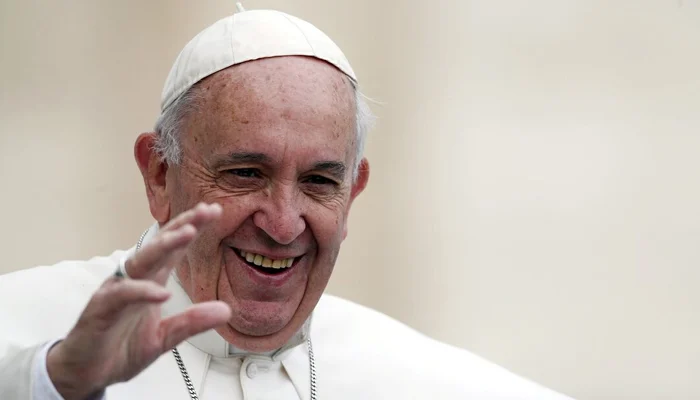Pope Francis died on Monday at the age of 88, a day after his much-anticipated appearance at Saint Peter’s Square on Easter Sunday, the Vatican announced in a statement.
“Dearest brothers and sisters, it is with deep sorrow that I must announce the death of our Holy Father Francis,” Cardinal Kevin Farrell said in the statement released by the Vatican on its Telegram channel.
“This morning at 7:35am the Bishop of Rome, Francis, returned to the home of the Father. His entire life was dedicated to the service of the Lord and His church.”
Francis’s death occurred just a day after he delighted worshippers at the Vatican with an appearance on the balcony of Saint Peter’s Basilica, despite his recent recovery from a severe illness.
Francis had faced life-threatening health issues earlier this year, battling pneumonia.
He spent 38 days in hospital before being discharged on March 23rd.
On Sunday, Francis entered St. Peter’s Square in an open-air popemobile shortly after midday, greeting cheering crowds.
He wished the crowds a “Happy Easter” and, during his traditional “Urbi et Orbi” (“To the City and the World”) benediction, called for freedom of thought and tolerance.
He also delivered a special blessing, his first since Christmas.
Jorge Mario Bergoglio was elected pope on March 13, 2013, surprising many church observers who viewed the Argentine cleric, known for his advocacy for the poor, as an outsider.
He sought to project simplicity into the papacy, declining to occupy the ornate papal apartments in the Apostolic Palace used by his predecessors, opting instead to live in a community setting for his “psychological health.”
He inherited a Church grappling with a child sex abuse scandal and internal conflicts within the Vatican bureaucracy, and was elected with a mandate to restore order.
However, as his papacy progressed, he faced strong criticism from conservatives who accused him of undermining cherished traditions. He also drew ire from progressives who felt he should have done more to reform the 2,000-year-old Church.
Despite internal dissent, Francis became a global figure, attracting large crowds during his international travels as he promoted interfaith dialogue and peace, championing the marginalized, such as migrants.
Uniquely in modern times, two men in white resided in the Vatican for much of Francis’s reign, as his predecessor Benedict XVI continued to live in the Holy See after his unexpected resignation in 2013, which paved the way for Francis’s election.
Benedict, a figurehead for conservatives, died in December 2022, leaving Francis as the sole papal presence.
Francis appointed nearly 80% of the cardinal electors who will choose his successor, increasing the likelihood that his progressive policies will continue, despite opposition from traditionalists.



